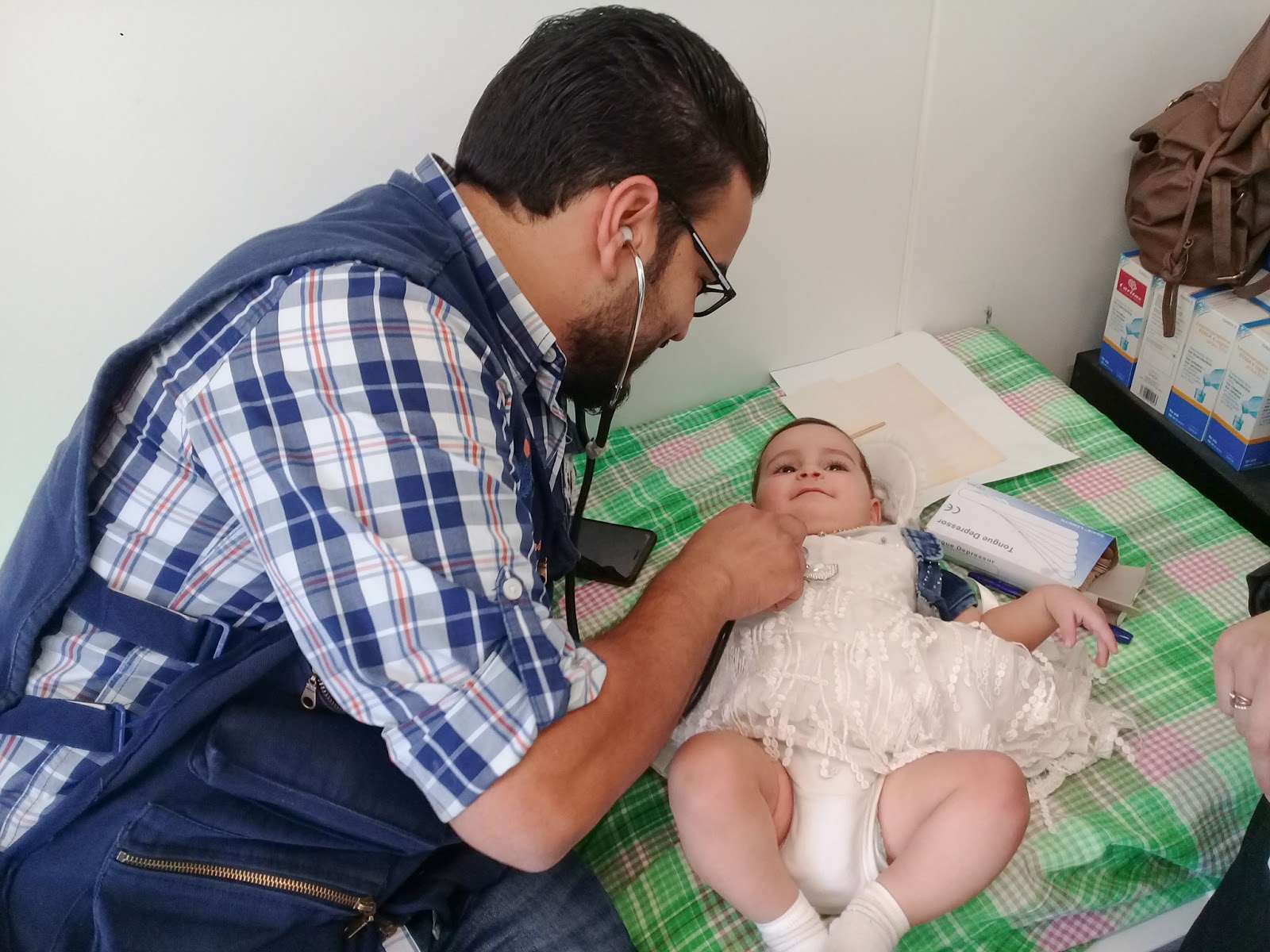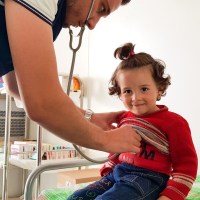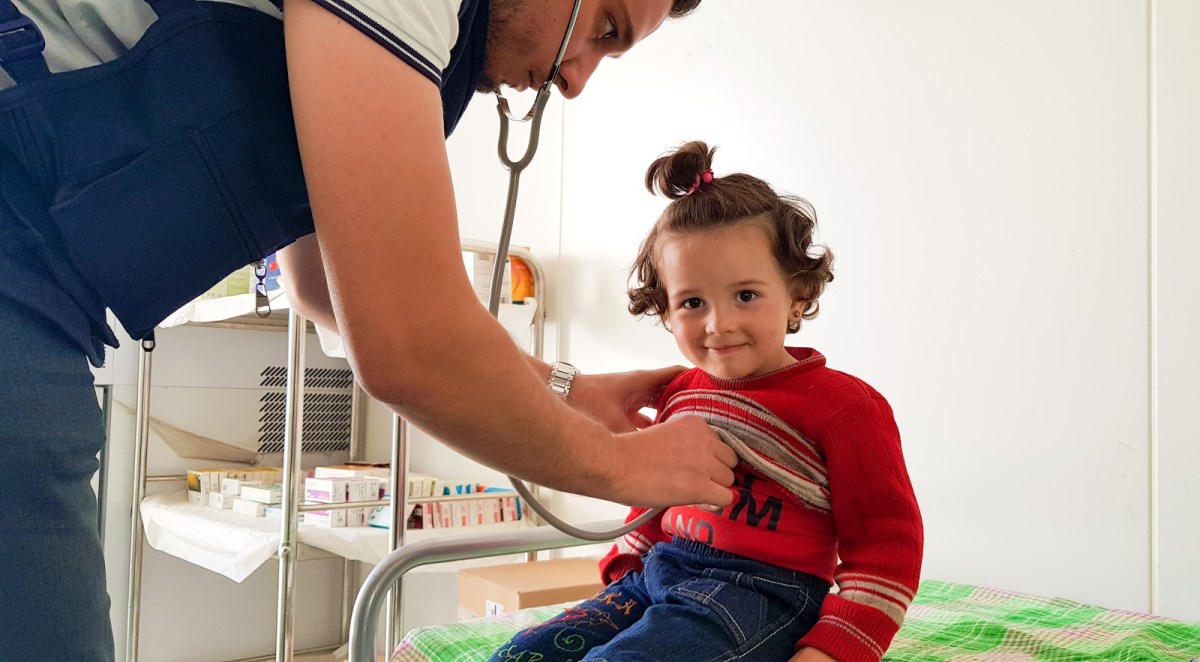Mr. A had severe bleeding from his left hand. If he wasn’t careful and allowed his arm to hang down at his side, blood would splat on the ground near his feet. In the part of Syria where he lives, one of the regions crushed by war and now without functioning hospitals, an injury like this could have quickly become life-threatening.
Mr. A got stitches in his hand to close the wound. He got medication to fight infection, and later he returned to get the stitches removed and have the scar examined to make sure it was healing well.
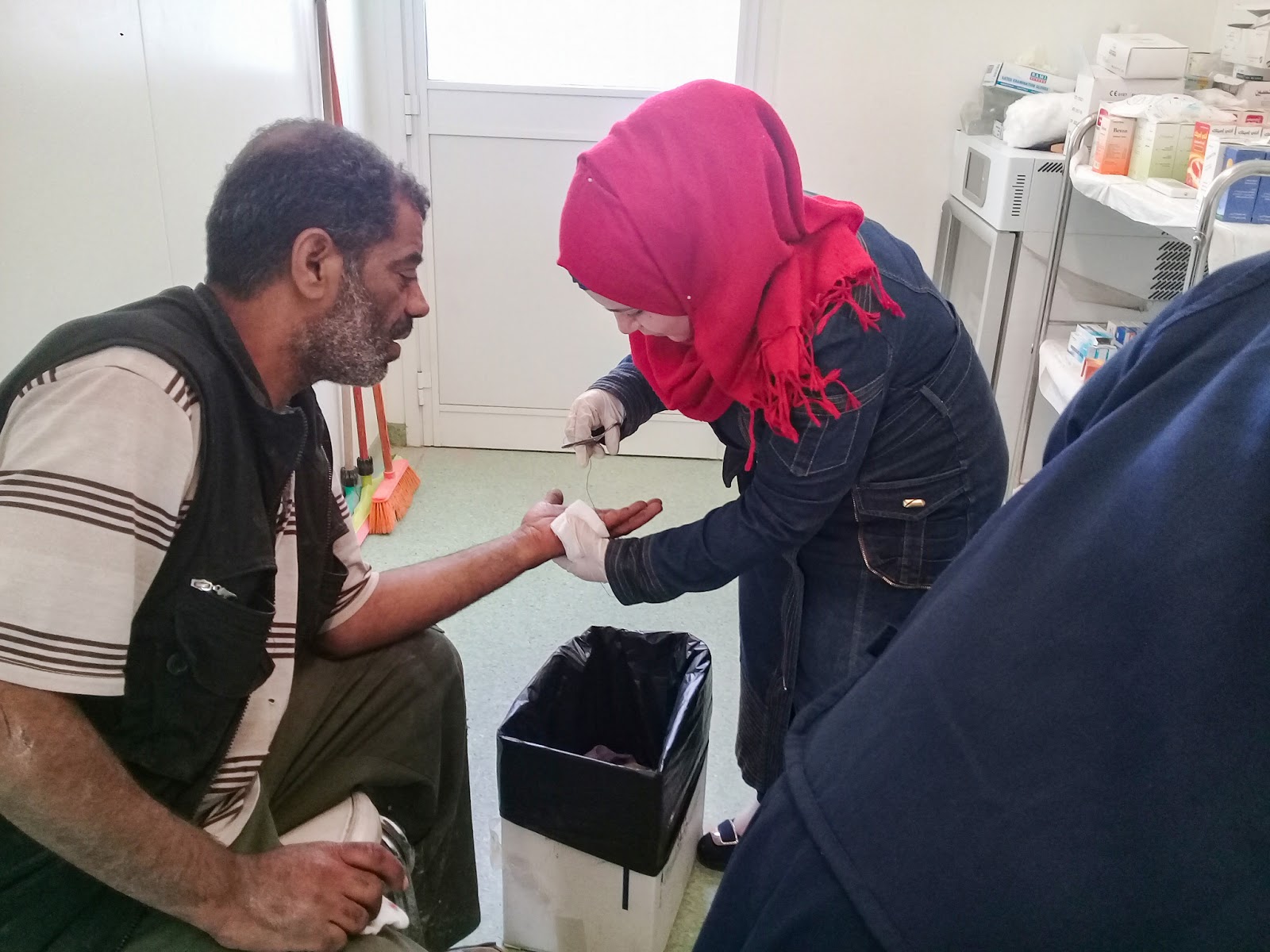
You are the reason why Mr. A didn’t have to worry about getting an infection that would take his arm, or his life. You provided healthcare to this community through a “hospitainer”—a tiny hospital built inside a metal shipping container.
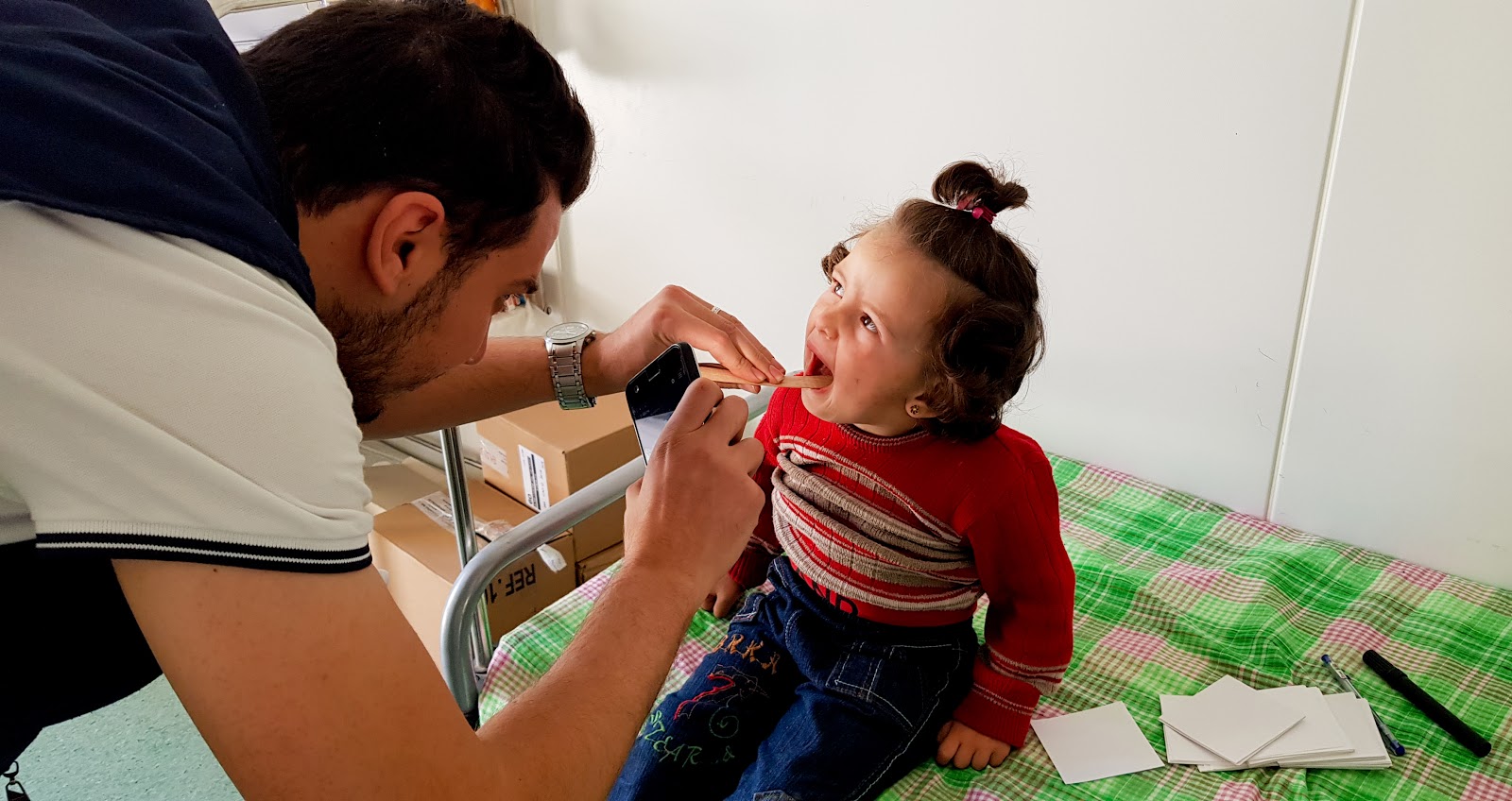
Sustainability is our guiding light when it comes to programming. From our early days of working to find the best local solutions to providing pediatric heart surgeries for Iraqi children born with heart defects, to our current work providing health care in the shadow of war zones, we always design programming with the long-term impacts of our work in mind. Whenever possible in the wake of war, we invest in permanent medical facilities which become anchors for communities which are rebuilding. We invest in solutions that local medical teams can use long into the future. By providing responses with solidity, we’ve helped thousands of families displaced by war to return home in Iraq.
Practicality always rides shot-gun beside sustainability. Cookie-cutter solutions don’t work well in war zones. There are some places, like large swaths of Syria where the sustained violence of 7 years of civil war, in addition to the dug-in presence of ISIS, means there are hundreds of thousands of families who are in desperate need of healthcare, but the situation remains too unstable to invest in permanent clinics.
You are showing up with solutions right where they are needed most.
Last year you helped us provide mobile medical clinics for Syrian families fleeing violence. These “walk-in clinics on wheels” allow us to bring urgent care to families in hard to navigate areas, whether bombed out neighborhoods or areas where the political situation might change rapidly. You provide essential, emergency care.
Now, you are providing more comprehensive care. For families who have gone years without access to a doctor while living in a war zone, their conditions are both incredibly common and often complicated.
Through “hospitainers”, we are able to bring more comprehensive and desperately needed services to Syrian families living in devastated communities.
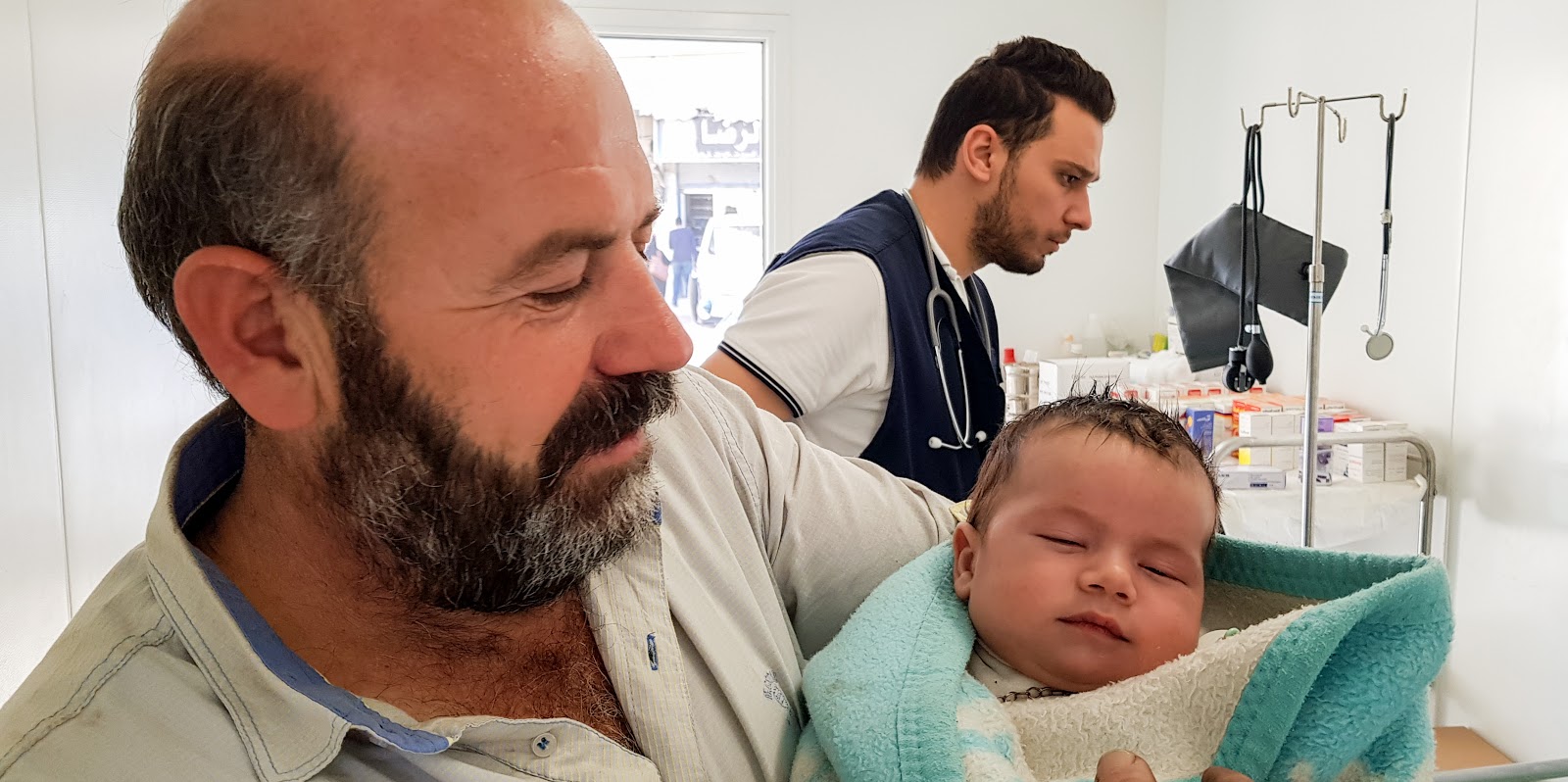
Syrian seniors can now get the medication they need for high blood pressure. Their sons can get stitches for injuries, and diagnosed for things like kidney stones. Their grandchildren can get medication for respiratory tract infections, and care for burns. And their daughters, like Ms. B, can get obstetric care.
When Ms. B (pictured below right) visited the center she was exhausted, and couldn’t help noticing the yellow cast to her skin. She’s pregnant, it was the beginning of her third trimester, and she just wasn’t feeling right. Mrs. B received a thorough checkup, including an echocardiogram where she learned her baby was alive and had a good heartbeat.
A maternity care specialist gave Mrs. B supplements and advice on getting more iron into her diet, and the team at the clinic continues to monitor her health as she waits for the birth of her child.
Mrs. B says she feels safe now, with the presence of the clinic. She is thankful for what it’s meant for her life, and the life of her baby.
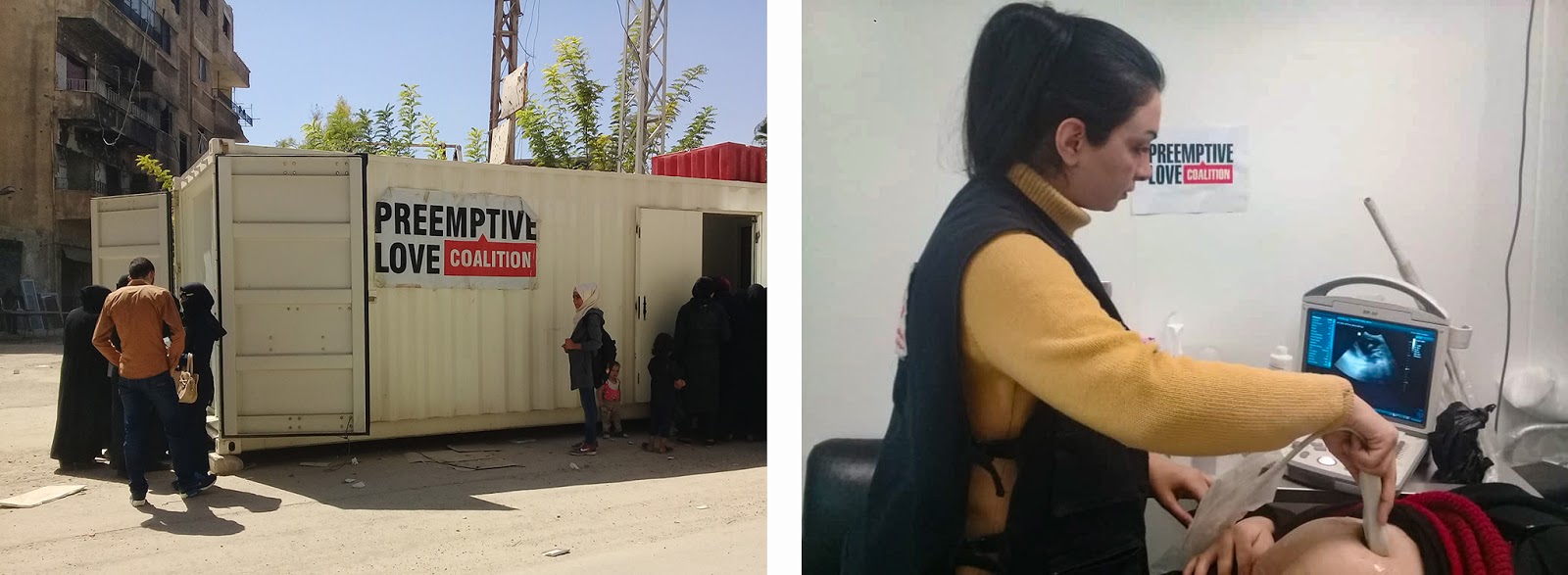
Mrs. B isn’t the only one who says she’s grateful. From January to October our mobile medical clinics provided 109,604 consultations!
When you show up in Syria with practical healthcare solutions that bridge the gap until permanent, sustainable structures can be restored, you help families who survived war—who made it through bombing campaigns and rooftop snipers—regain their health.
